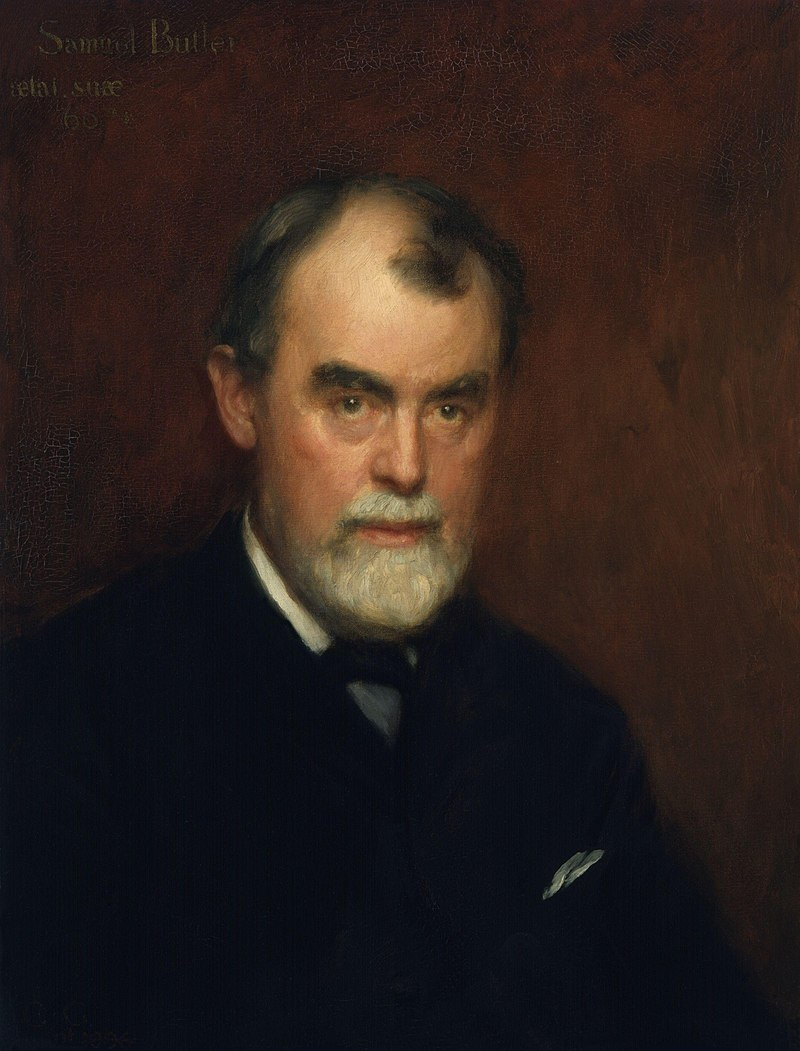
Samuel Butler was an English novelist born in 1835. His influence on literature, such as it was, came through The Way of All Flesh, which Butler completed in the 1880s, but left unpublished to protect his family.
Sue Zemka writes that “Among science fiction writers, The Book of the Machines has a canonical status, for it originates the conceit by which machines develop intelligent capacities and enslave mankind.” For example, in Frank Herbert’s Dune the “Butlerian Jihad” – “in-universe ancient revolt against ‘thinking machines’ that resulted in their prohibition” – is named after Butler.
From his letter to the editor of The Press newspaper on June 13, 1863: “Darwin among the Machines”
We refer to the question: What sort of creature man’s next successor in the supremacy of the earth is likely to be. We have often heard this debated; but it appears to us that we are ourselves creating our own successors; we are daily adding to the beauty and delicacy of their physical organisation; we are daily giving them greater power and supplying by all sorts of ingenious contrivances that self-regulating, self-acting power which will be to them what intellect has been to the human race. In the course of ages we shall find ourselves the inferior race.
…
Day by day, however, the machines are gaining ground upon us; day by day we are becoming more subservient to them; more men are daily bound down as slaves to tend them, more men are daily devoting the energies of their whole lives to the development of mechanical life. The upshot is simply a question of time, but that the time will come when the machines will hold the real supremacy over the world and its inhabitants is what no person of a truly philosophic mind can for a moment question.
He compiled this letter and subsequent articles into “The Book of Machines”, 3 chapters of his novel Erewhon. From this section of his novel:
“Herein lies our danger. For many seem inclined to acquiesce in so dishonourable a future. They say that although man should become to the machines what the horse and dog are to us, yet that he will continue to exist, and will probably be better off in a state of domestication under the beneficent rule of the machines than in his present wild condition. We treat our domestic animals with much kindness. We give them whatever we believe to be the best for them; and there can be no doubt that our use of meat has increased their happiness rather than detracted from it. In like manner there is reason to hope that the machines will use us kindly
…
our bondage will steal upon us noiselessly and by imperceptible approaches; nor will there ever be such a clashing of desires between man and the machines as will lead to an encounter between them. Among themselves the machines will war eternally, but they will still require man as the being through whose agency the struggle will be principally conducted. In point of fact there is no occasion for anxiety about the future happiness of man so long as he continues to be in any way profitable to the machines; he may become the inferior race, but he will be infinitely better off than he is now.“